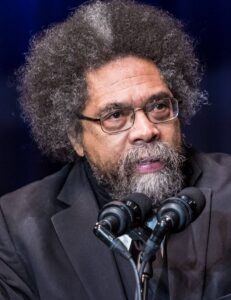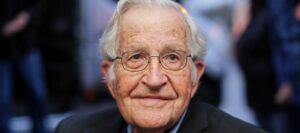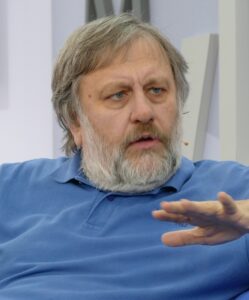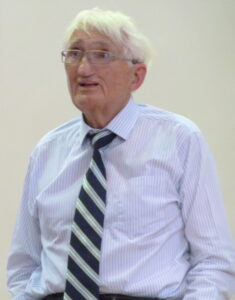Most parents have likely heard of large-name philosophers from the past, like Aristotle, Plato, Nietzsche, Kant, or Descartes. Philosophy was only a factor lower back in historical times or ages in the past.
But that needs to be revised. Philosophy is still alive and well-known nowadays, although it only gets a slight interest in the media. That’s why we are here to speak about it. Specifically, we are here to talk about the human beings behind it—philosophers.
In this piece, we will discuss the top five living philosophers. Sure, masses of other first-rate philosophers are available, like Peter Singer and Alain Badiou, but these five oldsters on our list certainly stand out.
So, let’s get into it. Here’s the list, in no particular order.
Cornel West
Cornel West, an American philosopher, political activist, and social critic, is renowned for exploring the troubles surrounding race, elegance, and gender. His great works encompass “Race Matters” and “Democracy Matters.”

As a professor of the Practice of Public Philosophy at Harvard University, West has additionally taught at esteemed establishments like Princeton and Yale. He’s vocal about the failings he perceives in the American political gadget and actively participates in diverse political movements.
Cornel West holds an outstanding role in the current philosophical panorama, presenting precious insights into social and political subjects.
Here are a few critical factors of West’s philosophy:
1. Prophetic pragmatism: West blends pragmatism with a strong advocacy for social justice, which he terms “prophetic pragmatism.” He emphasizes realistic answers and addresses the stress stance of addressing societal injustices through ethical and spiritual lenses.
2. Focus on justice and equality: The West is deeply concerned with justice and equality, mainly concerning issues of race, magnificence, and gender. He critiques systems of energy and oppression, advocating for social exchange to create a more equitable society.
3. Critique of American society: West would not shy away from criticizing American culture, which he views as profoundly fallacious, characterized by systemic racism, financial inequality, and ethical decay. He requires a candid examination of the state’s records and ongoing injustices.
4. Intellectual engagement: West promotes vital wondering and interdisciplinary communication by engaging with many highbrow traditions—from philosophy to theology to music. He believes in the power of highbrow curiosity to foster significant discussions across numerous fields.
5. Spiritual measurement: West draws closely from his Christian religion alongside his educational and political endeavors. He sees spirituality as essential to know-how justice and human well-being, incorporating spiritual topics into his philosophical and political reflections.
Cornel West’s philosophy underscores his commitment to addressing urgent social problems through pragmatism, justice, and spirituality.
See also: Philosophers Who Went Insane
Martha Nussbaum

Martha Nussbaum, an American truth seeker and professor at the University of Chicago, is broadly recognized for her understanding of law, ethics, and political philosophy. With over twenty books under her belt and many awards honoring her philosophical contributions, she’s made quite a mark in the field.
One of Nussbaum’s best-known pieces, “The Fragility of Goodness,” examines human frailty and the critical role that compassion plays in moral judgment. She believes that compassion is the foundation of an honest society, not just something nice to be around.
Nussbaum excels in the development of abilities and techniques as well. This framework emphasizes people’s ability to lead fulfilling lives in order to evaluate social and economic growth. She emphasizes how crucial it is to provide people with the support they require in order to follow their goals and find their calling in life.
Noam Chomsky
Noam Chomsky is the most famous logician on this list. He’s also recognized as a linguist and political activist, making waves in linguistics, psychology, and philosophy.
Chomsky’s claim to fame lies in his concept of generative grammar, which indicates that language is inherent to human beings and that we possess an innate potential to recognize and produce it. He’s additionally been a vocal opponent of behaviorism, arguing that it overlooks the complicated nature of human language.

In addition to his linguistic contributions, Chomsky is a lively political voice. He criticizes U.S. Overseas policies and delves into subjects related to imperialism, capitalism, and the media.
Among his beautiful works is “American Power and the New Mandarins,” featuring his impactful essay on the Responsibility of Intellectuals, which critiques the Vietnam War and U.S. Foreign policy. Another sizable piece is “Hegemony or Survival: America’s Quest for Global Dominance,” wherein he examines America’s pursuit of world hegemony.
Slavoj Žižek
Slavoj Žižek, from Slovenia, is a logician and cultural critic known for his substantial contributions to political theory, psychoanalysis, and continental philosophy. His thoughts are often provocative and debatable, challenging established norms while providing sparkling views on numerous topics.

One of Žižek’s standout works is “The Sublime Object of Ideology,” he argues that ideology isn’t always simply a set of false ideals but a center detail of our social reality, molding our perceptions and moves. He delves into the influence of ideology on the popular way of life, dissecting the whole thing from Hollywood flicks to speedy-food joints.
Additionally, Žižek has delved deeply into the works of Jacques Lacan, a French psychoanalyst whose thoughts have left a full-size mark on cutting-edge philosophy and cultural theory. He applies Lacanian standards across numerous fields, consisting of film principles, political principles, and the evaluation of popular tradition.
Jürgen Habermas
Jürgen Habermas, a German truth seeker, is respected as one of the most influential thinkers of the 20th and 21st centuries. His primary expertise lies in critical thought and communicative movement.

Born in 1929 in Düsseldorf, Germany, Habermas’s intellectual adventure took shape at the University of Frankfurt, where he absorbed the vital theories of Theodor Adorno and Max Horkheimer. He later became a professor of philosophy at the same university, shaping minds for over two decades.
At the center of Habermas’s philosophy is the paramount importance of verbal exchange in society. He contends that assertive communication is the linchpin for creating a simple and democratic society. Habermas has penned numerous works exploring morality, regulation, and democracy.
Habermas’s most tremendous contribution is his idea of “communicative motion,” specified in “The Theory of Communicative Action.” This seminal work serves as a cornerstone of his philosophy, resonating throughout many disciplines, along with verbal exchange research, cultural research, moral principle, law, linguistics, literary principle, philosophy, political science, nonsecular research, theology, sociology, and democratic principle.
